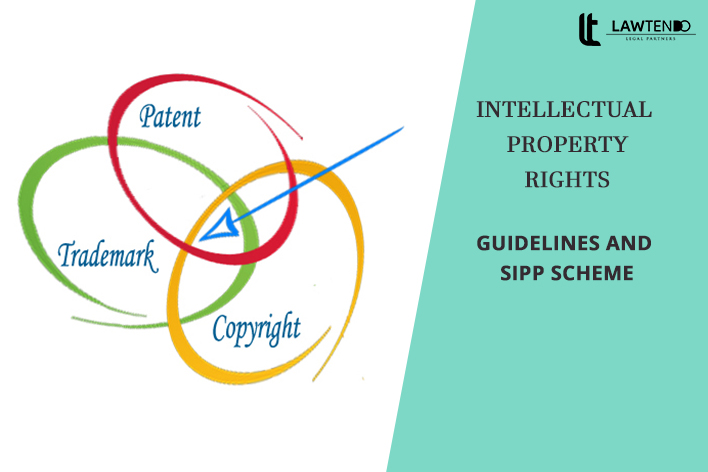IPR and guidelines of IPR to facilitate startups (SIPP Scheme)

Date : 22 Jan, 2020
Post By Nivedita Yadav
Intellectual property is a legal field that refers to the creation of intellect; it means the creation of minds such as artistic works, inventions, literary work, and intellectual property rights are similar to any other property right. The intellectual property rights provide the owners with the right to enjoy the benefits derived from their own work. These rights are granted for the creations made by the human mind requiring skills and innovation which usually depend on the criteria like a novelty, non-obviousness, and usefulness. The progress of society depends upon its capacity to innovate and create which should be protected and the intellectual property right provides the owner with such protection. Intellectual property rights are used to accelerate the economic growth and protection of intellectual property spurs, the quality of life and acts as a catalyst for the development of society. At the same time, IPR creates a balance between the interests of the innovator and the individuals, industries, etc so that the benefits derived by exploiting a creation will be enjoyed by all. However, having an idea in your mind does not protect your rights. Without the proper manifestation of an idea there cannot be any protection of the intellectual property. Without any actual or perceived patent protection anyone can use your idea which was explained in a very landmark judgement of Donoghue vs. Allied Newspaper, in which Farwell J said: ‘If the idea, however original, is nothing more than an idea, and is not put into any form of words, or any form of expression such as a picture, then there is no such thing as copyright at all.’ Start-Ups Intellectual Property Protection (SIPP) The Indian Government, in an attempt to support start-ups in India, launched the Scheme for Facilitating Start-Ups Intellectual Property Protection (SIPP) in the month of January 2016. This scheme is an effort to promote and protect the start-ups Intellectual Property Rights (IPR). Start-ups can avail design, patent, trademark services by paying the required statutory fees excluding professional fees. The Government would take nominal professional fees for the services related to procuring the IPR from the advocates or patent/trademark agents in charge of handling the IPR process. The objective of the Start-up Intellectual Property Protection scheme is to promote and protect the intellectual Property rights of start-ups and thus encourage originality and innovation among them. The scheme aims at promoting awareness regarding intellectual property rights in start-ups and to provide protection to the inventive technologies and expression of ideas by providing them access to high-quality intellectual property resources and services. WHO CAN APPLY The eligibility criteria for the start-ups under this scheme is that the entity must have been registered or incorporated in India within last five years and should have a turnover not exceeding Rs. 25 crores in the last financial year. Start-up can avail benefits under this scheme only after it has obtained a certificate from the Start-Up Certification Board. The scheme also aims at providing IPR facilitators who will provide start-ups with a range of services related to IPR protection. WHO CAN BE A FACILITATOR- 1. Any trademark agent registered with Controller
General of Patent, Design, and trademark. 2. Any patent agent registered with Controller
General of Patent, Design,
and Trademark. 3. Government departments, organizations, agencies
like Technology Information, Forecasting and Assessment Council (TIFAC),
National Research Development Corporation (NRDC), and Industrial Research (DSIR) FUNCTIONS OF FACILITATOR 1. Providing general consultations on various
intellectual property rights to Start-Ups for the good of the people. 2. Providing details regarding the protection and
promotion of Intellectual Property rights in a Start-up in other countries. 3. Providing cooperation in matters relating to
filing and disposal of Intellectual Property applications relating to patents,
trademarks, designs. 4. Appearing on behalf of the start-up in the
matter related IPR CONCLUSION Hence, we can conclude that Intellectual property helps in converting the ideas into commercial products thereby resulting in monetary benefits and this scheme helps in promoting and protecting the Intellectual Property Rights of Start-up. It also helps in protecting the inventions and concepts of individuals which helps in maintaining a competitive edge over other similar businesses. Protection of the inventor of the work or the originator is the basic necessity and the major challenge is to create a balance between the private and public interests without jeopardizing social and technological advancement. Strict rules and regulations to control piracy and infringement should be made so that the rights are preserved which are guaranteed.





